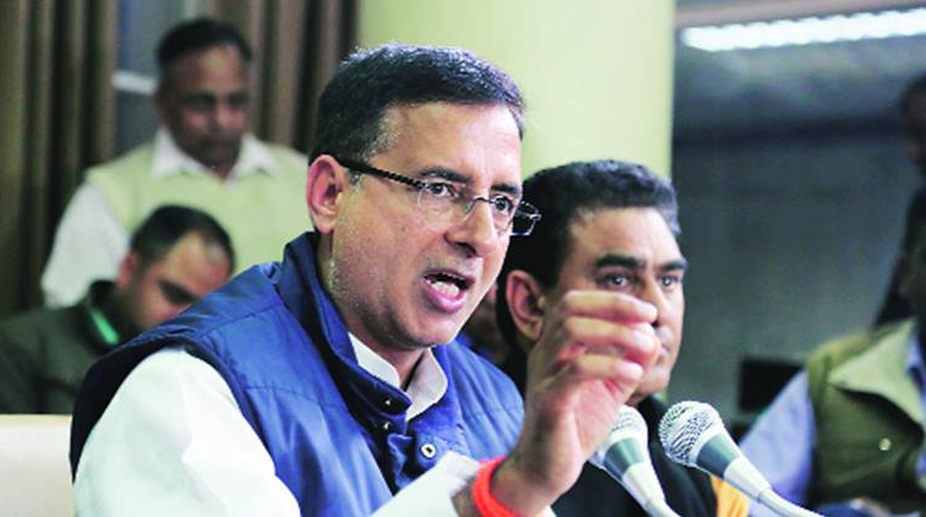Ruling and oppostion members spar over Governor’s address in Himachal Assembly
The opposition members tried to highlight the failures of the government, while the ruling party boasted of the achievements of its government.

Randeep Singh Surjewala (Photo: Twitter)
The Congress today alleged that “chaos” has gripped the country after a hasty implementation of the Goods and Services Tax (GST), which led to a dip in states’ revenues.
Congress media in-charge Randeep Surjewala, along with Punjab Finance Minister Manpreet Badal and Karnataka Minister Krishna Byre Gowda, said the party would raise concerns of the textile sector and the revenue shortfall of states at the meeting of the GST Council tomorrow.
Advertisement
“The Congress party stands committed to taking up these issues in the GST Council through the Finance Ministers of Congress-ruled states,” they said in a joint statement.
Advertisement
Badal said, “There is a lot of pressure on states. There is pandemonium, there is chaos.”
He said there is “chaos” in the domestic manufacturing sectors such as textiles.
“Punjab was expecting Rs 1,650 crore in July this year by way of taxes, but have got only Rs 846 crore. There is a revenue shortfall of around Rs 800 crore and the state has to borrow money on interest to pay up salaries.
“The Centre, on the other hand, is sitting on a huge pile of money and is earning interest on it,” he said.
Gowda said that Karnataka has fallen short of revenues to the tune of Rs 600 crore in July itself, the first month after the GST implementation.
The two said they would raise the issue “very forcefully” in tomorrow’s meeting of the GST Council as the “Congress has serious reservations on a lot of issues”.
They said the GST was implemented in haste without preparations, only keeping Gujarat elections in mind, and “it has led to a lot of human hardships”.
The Congress leaders said while customs duties on import of textiles were being reduced from 18 per cent to 5 per cent, the tax on the domestic textile sector was increased.
They added that in the domestic sector too, the big mills and textile manufacturers have benefitted as they have to pay less while the small manufacturers are discriminated against and will be unable to withstand the competition from imports.
They demanded that the government consider providing appropriate relief to save the textile sector, which is the most important employment generator and contributor to India’s economy.
Advertisement